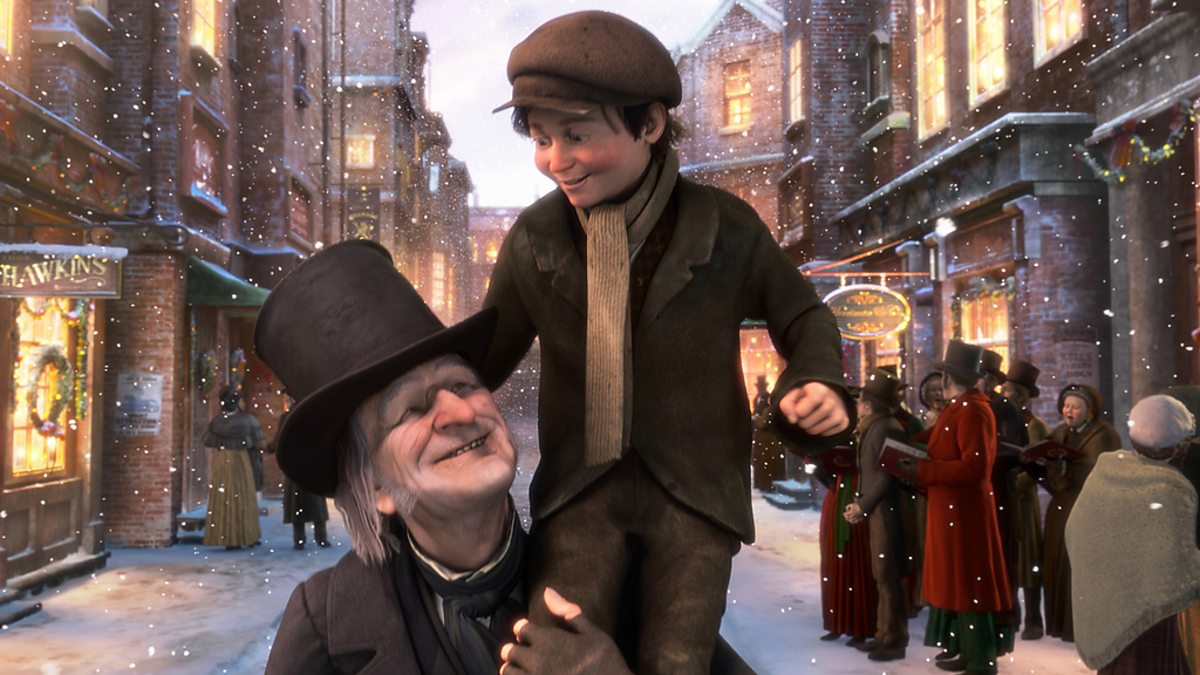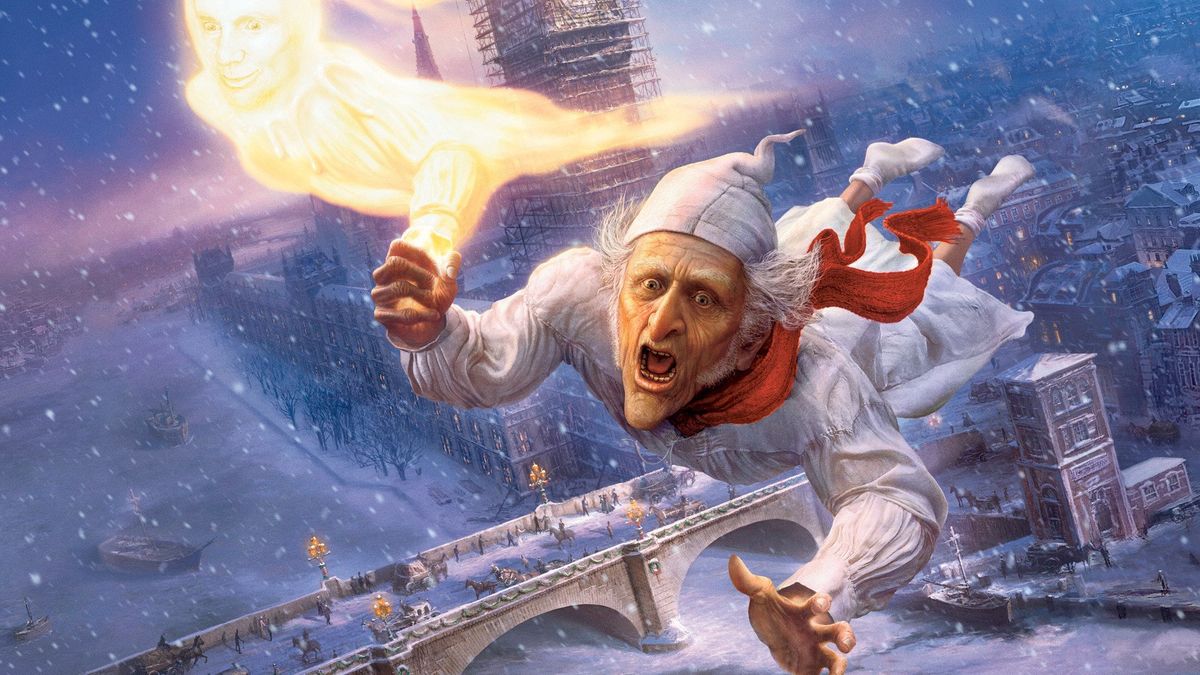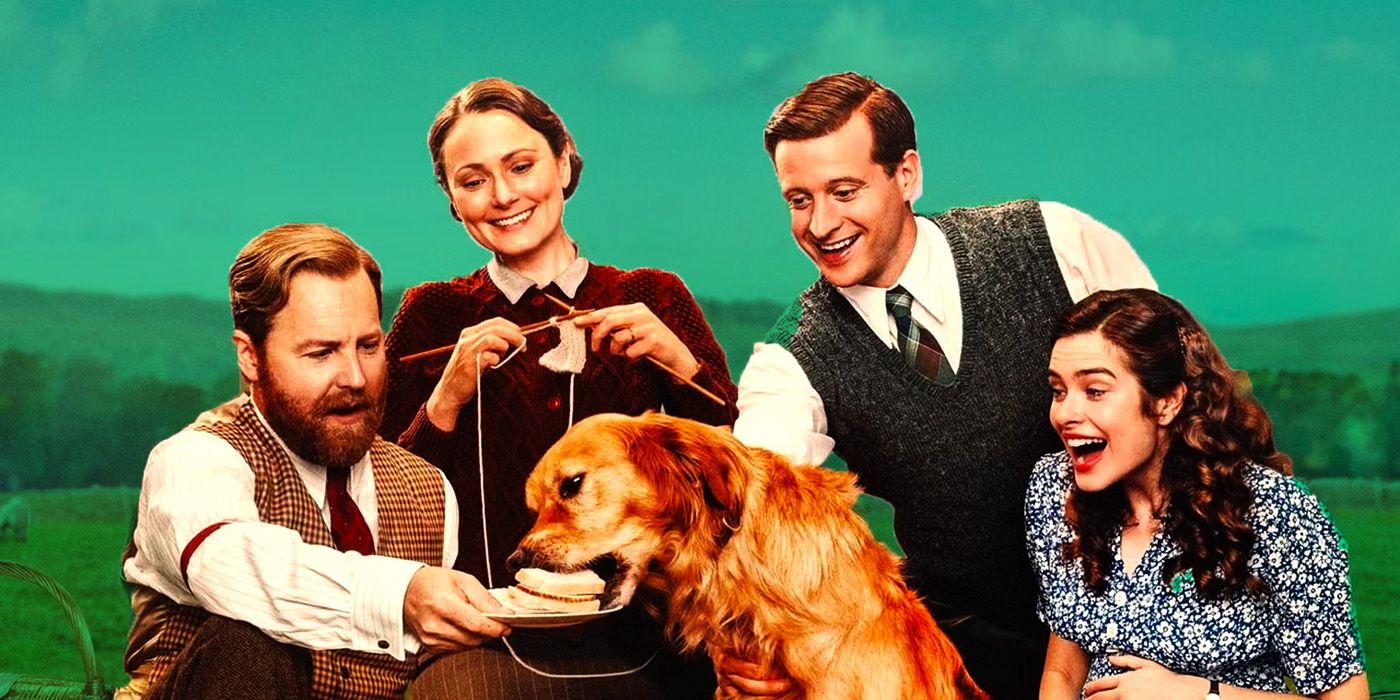A Christmas Carol (2026)
A Christmas Carol (2026) is a sweeping, visually stunning, and emotionally charged reimagining of Charles Dickens’s timeless tale — a bold new adaptation that brings the classic story to life for a new generation. Directed by Joe Wright (

The film opens on a cold, fog-drenched London in 1843, rendered with the painterly realism and emotional grandeur Joe Wright is known for. Ralph Fiennes’s Scrooge is not merely cruel or miserly — he is broken, hollowed by the losses of his youth and the loneliness of his old age. When the ghost of Jacob Marley (Mark Rylance), his long-dead business partner, visits on Christmas Eve wrapped in spectral chains of iron and regret, the story takes on a chilling beauty. Marley warns Scrooge that his time to change is running out — and that he will be visited by three spirits who will show him the truth of his life.
The first, the Ghost of Christmas Past (Florence Pugh), appears as an ethereal figure of light, leading Scrooge through memory like a conductor of time. In a dazzling sequence of shifting vignettes — from his lost childhood to the tender love he once shared with Belle (Vanessa Kirby) — Scrooge is forced to watch how ambition and fear slowly eclipsed the joy within him. Pugh’s performance is both tender and fierce, a haunting reminder that memory can be both gift and punishment. These scenes carry a dreamlike beauty, with Wright using candlelight and slow pans to evoke the ache of nostalgia and the danger of regret.

Next comes the Ghost of Christmas Present (Idris Elba), a commanding and warm spirit who shows Scrooge the world as it is — vibrant, struggling, but still filled with love. Through his eyes, Scrooge witnesses the Cratchit family’s humble Christmas, where laughter endures despite poverty and Tiny Tim’s frailty. These moments pulse with humanity, captured through Wright’s signature long takes and naturalistic performances. The Cratchit home, glowing with firelight and hope, stands as a stark contrast to Scrooge’s cold mansion of marble and silence. Elba’s booming laugh and gentle wisdom give the film its emotional heartbeat, reminding Scrooge — and the audience — that generosity is not about wealth, but spirit.
Then comes the Ghost of Christmas Yet to Come (Cate Blanchett), a silent, otherworldly figure who embodies death itself. Her presence transforms the film into a near-operatic vision of fear and awe. The cinematography turns expressionistic — shadows elongate, buildings tilt, and snow falls in thick, suffocating silence. Scrooge’s vision of his own grave, neglected and forgotten, is rendered with devastating stillness. Blanchett’s ghost never speaks, but her presence is magnetic — a reminder that mortality is the great equalizer, and that change must come before it’s too late.
In the film’s cathartic final act, Scrooge awakens on Christmas morning not with bombast, but with trembling joy. Ralph Fiennes delivers a career-defining performance as a man reborn — his laughter breaking like sunlight through fog. He rushes through the streets of London, his face alight with wonder, spreading generosity wherever he goes. The iconic scenes — the turkey for the Cratchits, the reunion with Fred, the whispered apology to his clerk — are rendered with warmth and intimacy, every gesture weighted with newfound gratitude. Dario Marianelli’s sweeping orchestral score crescendos into a hymn of hope and renewal, perfectly complementing Wright’s lush direction.

A Christmas Carol (2026) closes with Scrooge standing beneath the flickering gaslights as snow drifts softly around him. He looks toward the heavens — not in fear, but in peace. “I will honor Christmas in my heart,” he says, voice trembling, “and try to keep it all the year.” The camera pans upward through the glowing city as the choir swells, and for a moment, the world feels redeemed. This adaptation is both reverent and revolutionary — a visually magnificent, emotionally resonant reminder that redemption is timeless, and kindness, above all, is the truest miracle of Christmas.
All Creatures Great & Small – Series 6 (2025)

All Creatures Great & Small – Series 6 (2025) is a gentle, deeply emotional continuation of Channel 5 and PBS Masterpiece’s beloved drama — a series that continues to remind audiences why kindness, compassion, and community never go out of style. Set in the Yorkshire Dales in the early 1950s, this new season finds the world of Skeldale House at a moment of quiet transformation, balancing laughter and heartbreak with the series’ trademark warmth. Under returning showrunner Ben Vanstone,
The season opens in the spring of 1952, as the Dales begin to feel the slow but certain pull of modern life. James Herriot (Nicholas Ralph) and Helen (Rachel Shenton) are now proud parents to baby Rosie, and their new life as a family is as joyous as it is demanding. James, ever devoted and idealistic, struggles to balance his veterinary duties with fatherhood, especially as he’s drawn into a government initiative focused on animal health and agricultural reform. His growing involvement in national veterinary work threatens to take him away from Darrowby — and from the simple life he’s come to cherish. Helen, wise and grounded, becomes the heart of the home, her strength quietly anchoring those around her as Skeldale faces change once again.
![]()
Siegfried Farnon (Samuel West), meanwhile, wrestles with the passage of time. The irascible, brilliant senior vet begins to question his own relevance as younger men like James and Tristan adapt to new methods and new thinking. His pride and vulnerability form one of the season’s most poignant arcs, especially as he contemplates retirement for the first time. A series of health scares and long-overdue reflections on his late brother Robert lead Siegfried to confront the loneliness that comes from dedicating one’s life entirely to work. His bond with Mrs Hall (Anna Madeley), now deep and tender, evolves into something quietly romantic — a relationship built not on passion but on shared respect, humor, and healing.

Tristan Farnon (Callum Woodhouse) returns from his veterinary training in Edinburgh a changed man — more confident, more capable, and perhaps a little less reckless. His newfound maturity is tested when he takes on greater responsibility at Skeldale and faces his first major solo case involving a struggling dairy farmer and a mysterious outbreak among his cattle. Through success and failure, Tristan learns that being a vet isn’t just about medicine — it’s about empathy, patience, and humility. His storyline brings some of the season’s lightest, funniest moments, as well as one of its most touching, as he begins to see Siegfried not just as a mentor, but as the man who quietly raised him.
Mrs Hall remains the moral heart of the series, her quiet wisdom touching every life in Skeldale. As her son Edward’s life in the RAF takes him further away, she faces an empty nest and must redefine what “home” means for herself. Her gentle courtship with Siegfried is handled with exquisite subtlety — a shared cup of tea, a walk at dusk, a knowing glance that says more than words ever could. The two discover that love, at their age, isn’t about youth or adventure, but about peace and companionship — a theme that perfectly captures the show’s spirit.
![]()
Visually, Series 6 continues to be breathtaking — the rolling green hills of the Dales, the stone barns, the soft light of evening on fields of heather. The cinematography finds beauty in the ordinary: a newborn calf taking its first steps, a rainy morning drive, a dinner table full of laughter. The score, composed by Alexandra Harwood, swells with warmth and nostalgia, echoing the emotional rhythm of the countryside — its patience, its endurance, its quiet joy.
The season’s finale brings both resolution and renewal. A sudden outbreak of foot-and-mouth disease threatens every farm in the valley, testing James’s leadership and the community’s resilience. The crisis brings all of Darrowby together — farmers, vets, and neighbors — in scenes that are as stirring as they are heartbreaking. When the outbreak finally subsides, James realizes that home is not defined by where one works, but by the people who believe in you. The final scene finds the entire Skeldale family gathered for a summer fête, laughter ringing through the air as Rosie toddles across the grass. Siegfried raises a glass and says softly,

All Creatures Great & Small – Series 6 (2025) is a triumph of gentle storytelling — compassionate, funny, and deeply humane. It’s a season about change, about growing older, and about holding fast to love and decency in a world that’s always moving forward. With its heartfelt performances, gorgeous landscapes, and timeless wisdom, it remains one of television’s purest joys — a reminder that, in the Dales, every life, great or small, still matters.




